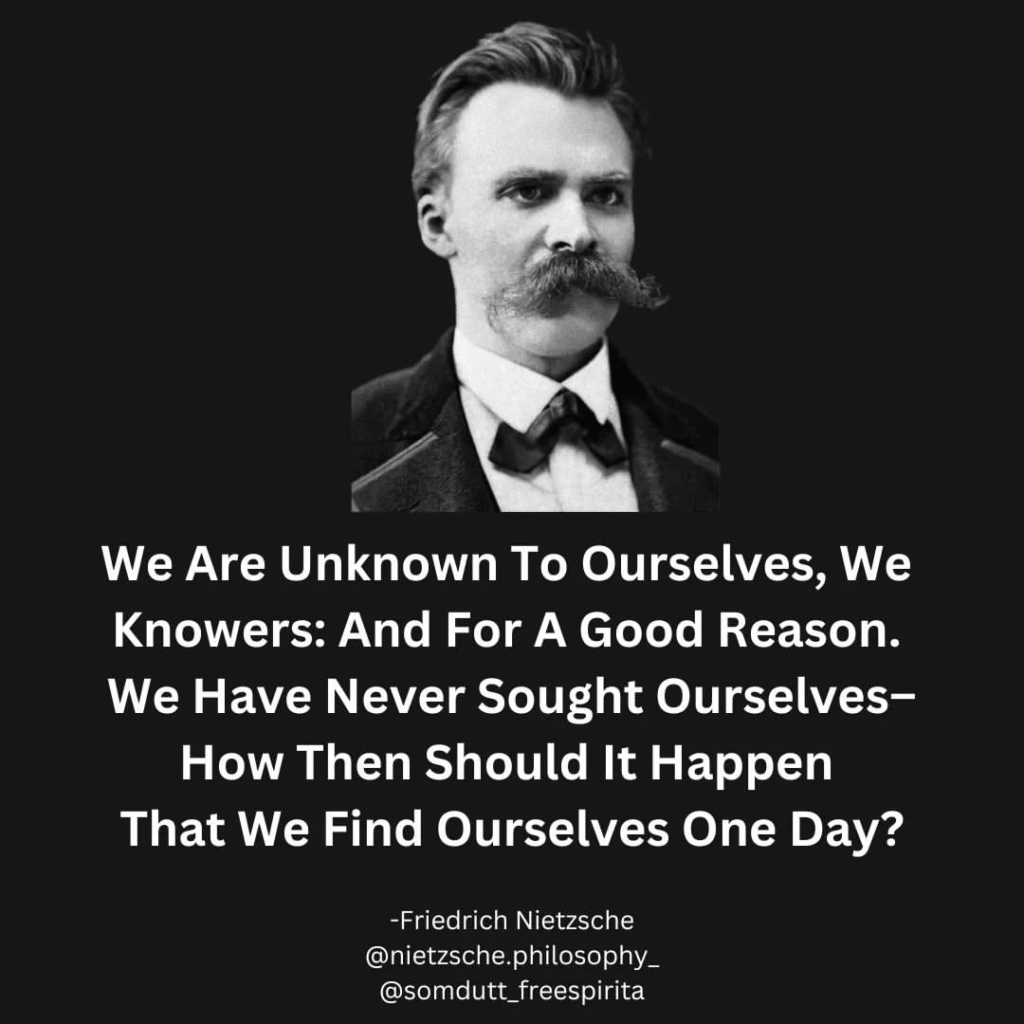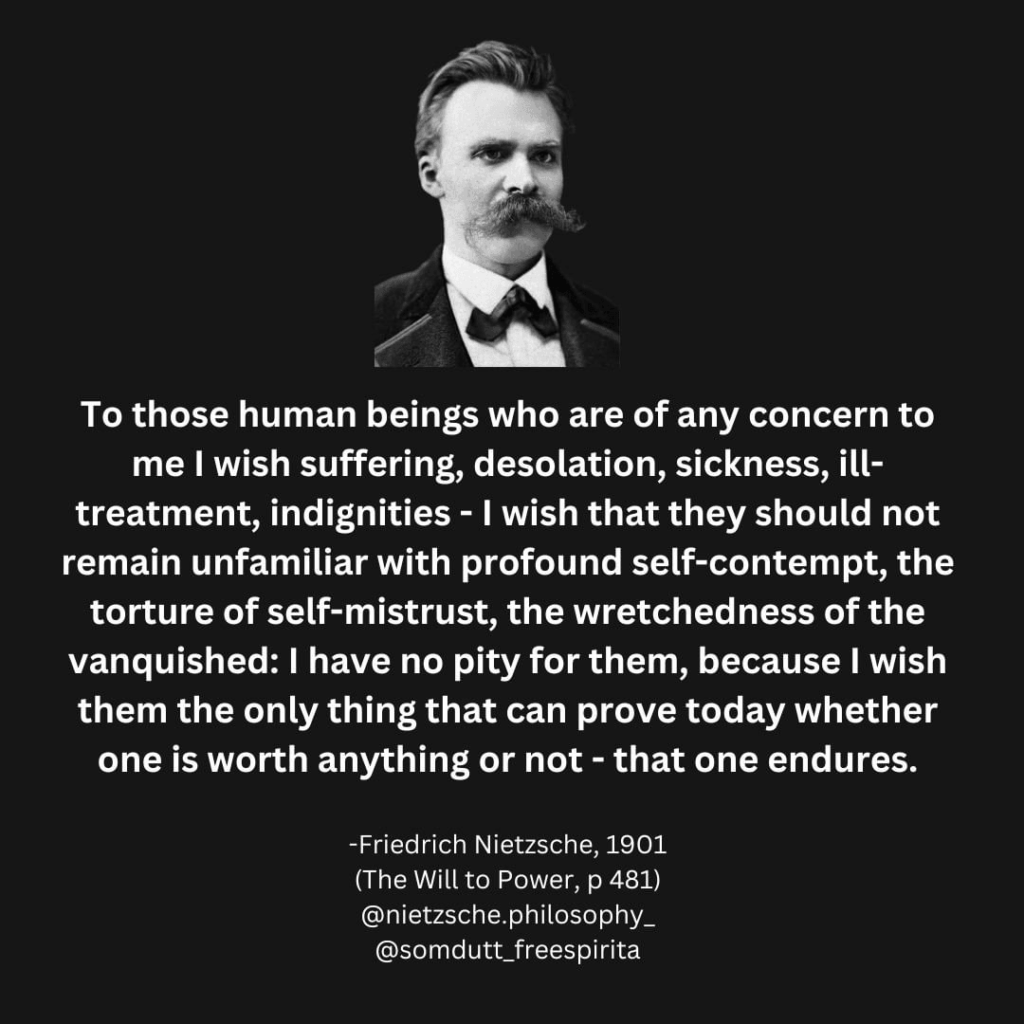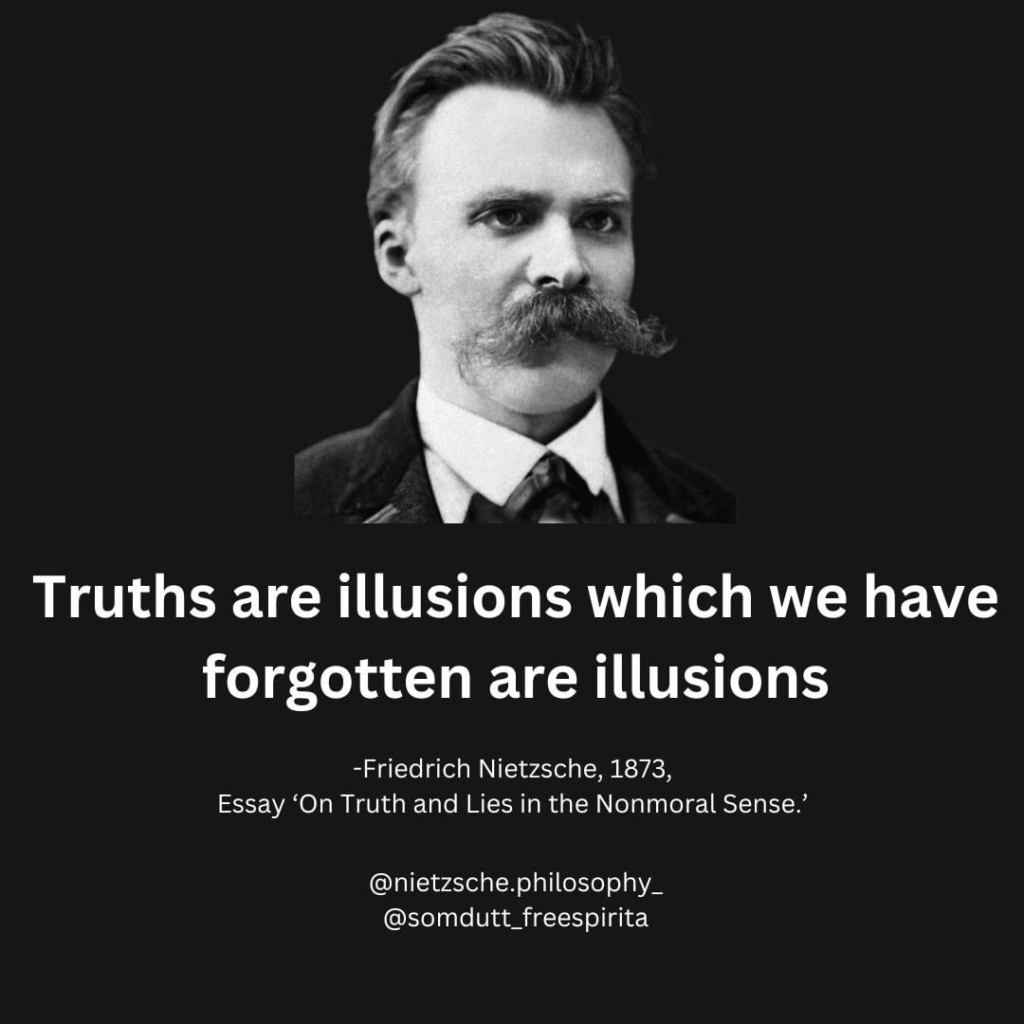Last updated on September 2nd, 2024 at 08:28 pm
- The Formative Years: Nurturing the Seeds of Genius
- The Birth of a Philosopher: From Philology to Philosophy
- The Nietzschean Revolution: Challenging Conventional Wisdom
- The Tragic Genius: Nietzsche’s Personal Struggles and Mental Health
- The Nietzschean Legacy: Influence Across Disciplines
- The Enduring Enigma: Nietzsche in the 21st Century: Enduring” becomes “Still Important Today
- Conclusion: The Eternal Return of Nietzsche
In the pantheon of philosophical titans, few names resonate with as much power and controversy as Friedrich Nietzsche. A man whose ideas have shaped modern thought, challenged established norms, and continue to provoke intense debate more than a century after his death. But how did this 19th-century German philosopher transform from an obscure academic into a cultural icon whose influence spans far beyond the realm of philosophy?
Nietzsche’s journey to legendary status is a tale of intellectual audacity, profound insight, and tragic irony. Born in 1844 in a small Prussian village, young Friedrich showed early promise as a scholar of classical languages. However, it was not his academic prowess that would ultimately cement his place in history, but rather his radical approach to questioning existing values and his unyielding commitment to intellectual honesty.
At the heart of Nietzsche’s philosophy lies a call to authenticity – a challenge to each individual to become who they truly are. This powerful message resonated with those who felt stifled by societal conventions and religious dogma. Nietzsche’s declaration that “God is dead” was not a celebration of atheism, but a stark warning about the cultural and moral vacuum left in the wake of declining religious belief in Europe.
Nietzsche’s writing style was as revolutionary as his ideas. Eschewing dry academic prose, he crafted aphorisms and employed poetic language that made his work accessible and appealing to a broader audience. His most famous work, “Thus Spoke Zarathustra,” reads more like a philosophical novel than a traditional philosophical treatise, further broadening his appeal beyond academic circles.
The philosopher’s call to live dangerously and embrace life’s challenges struck a chord with those seeking meaning in an increasingly secular world. His concept of the Übermensch, or “Overman,” inspired individuals to strive for greatness and self-overcoming, rejecting complacency and mediocrity.
Ironically, Nietzsche’s rise to legendary status was accelerated by his tragic decline into madness in 1889. The image of the brilliant philosopher driven to insanity by the depth of his insights added a layer of mystique to his already provocative ideas. This tragic end, coupled with his sister’s controversial handling of his legacy, only served to fuel public fascination with Nietzsche and his work.
In the 20th century, Nietzsche’s ideas experienced a resurgence, influencing existentialist philosophers, psychologists, and artists alike. His critique of traditional morality and emphasis on individual self-realization found new relevance in a world grappling with the aftermath of two world wars and rapid social change.
Today, Nietzsche’s legacy continues to grow, with his ideas finding new applications in fields as diverse as neuroscience, artificial intelligence ethics, and even self-help literature. His philosophy, once considered dangerously radical, now permeates popular culture, from literature and film to music and social media.
“In individuals, insanity is rare; but in groups, parties, nations and epochs, it is the rule.”
― Friedrich Nietzsche
The story of how Nietzsche became a legend is not just about the power of his ideas, but also about the enduring human quest for meaning and authenticity. In an age of increasing narcissism and shallow self-promotion, Nietzsche’s call for genuine self-realization and his uncompromising intellectual honesty continue to challenge and inspire.
His journey from a relatively unknown professor to a philosophical icon serves as a testament to the enduring power of ideas that dare to question the foundations of human thought and morality.
The Formative Years: Nurturing the Seeds of Genius
Friedrich Wilhelm Nietzsche entered the world on October 15, 1844, in the small village of Röcken, Prussia. Born into a family steeped in religious tradition, with both his father and grandfathers serving as Lutheran ministers, young Friedrich was immersed in an environment that would later become the crucible for his revolutionary ideas. The early loss of his father when Nietzsche was just five years old cast a long shadow over his childhood, instilling in him a profound sense of the fragility of life and the mysteries of existence.
This early brush with tragedy ignited a spark of intellectual curiosity in Nietzsche that would burn brightly throughout his life. As he grappled with the harsh realities of loss and mortality, the young Friedrich found solace and purpose in the pursuit of knowledge. His insatiable appetite for learning and his exceptional academic prowess quickly set him apart from his peers, earning him a scholarship to the prestigious Schulpforta boarding school at the tender age of fourteen.
“The snake which cannot cast its skin has to die. As well the minds which are prevented from changing their opinions; they cease to be mind.”
― Friedrich Nietzsche
At Schulpforta, Nietzsche’s intellectual horizons expanded exponentially. Immersed in a rigorous curriculum that emphasized classical languages, literature, and philosophy, he thrived in an environment that nurtured his budding genius. It was here that Nietzsche first encountered the works of ancient Greek philosophers, an experience that would leave an indelible mark on his intellectual development and shape the trajectory of his future philosophical endeavors.
The young scholar’s time at Schulpforta was marked by a fervent dedication to his studies and a growing sense of intellectual independence. As he delved deeper into the realms of classical philology and philosophy, Nietzsche began to question the traditional beliefs and values that had been instilled in him from childhood. This burgeoning skepticism, coupled with his keen analytical mind, laid the foundation for the radical ideas that would later define his philosophical legacy.
“No one can construct for you the bridge upon which precisely you must cross the stream of life, no one but you yourself alone.”
― Friedrich Nietzsche
The Birth of a Philosopher: From Philology to Philosophy
Nietzsche’s academic brilliance continued to shine as he entered the University of Bonn in 1864 to study theology and classical philology. However, it was during this time that a profound shift occurred in his intellectual pursuits. As he delved deeper into the study of ancient texts and languages, Nietzsche found himself increasingly drawn to the philosophical implications of his philological work.

This transition from philology to philosophy was not a sudden leap but a gradual evolution, fueled by Nietzsche’s growing fascination with the fundamental questions of existence, morality, and the human condition. His exceptional talents in philology, combined with his innate philosophical inclinations, created a unique intellectual alchemy that would set him apart from his contemporaries and lay the groundwork for his groundbreaking ideas.
“Is man merely a mistake of God’s? Or God merely a mistake of man?”
― Friedrich Nietzsche
One of the pivotal moments in Nietzsche’s intellectual journey came with his discovery of Arthur Schopenhauer’s work, particularly “The World as Will and Representation.” Schopenhauer’s pessimistic philosophy and his critique of traditional metaphysics resonated deeply with Nietzsche, providing him with a philosophical framework that aligned with his own emerging worldview. This encounter with Schopenhauer’s ideas marked a turning point in Nietzsche’s intellectual development, igniting a passionate engagement with philosophical questions that would define the rest of his career.
“The surest way to corrupt a youth is to instruct him to hold in higher esteem those who think alike than those who think differently.”
― Friedrich Nietzsche
As Nietzsche’s reputation as a brilliant young scholar grew, he was appointed as a professor of classical philology at the University of Basel in 1869, at the remarkably young age of 24. This appointment was a testament to his extraordinary intellectual abilities and his growing influence in academic circles. However, even as he excelled in his philological work, Nietzsche’s true passion increasingly lay in the realm of philosophy.
“The advantage of a bad memory is that one enjoys several times the same good things for the first time.”
― Friedrich Nietzsche
It was during his time at Basel that Nietzsche began to develop his own distinctive philosophical voice. His first major work, “The Birth of Tragedy” (1872), marked his emergence as a bold and original thinker. In this groundbreaking text, Nietzsche challenged conventional interpretations of Greek culture, introducing his concept of the Apollonian and Dionysian forces in art and life. This work, while initially met with mixed reactions from the academic community, signaled the arrival of a new and provocative voice in the world of philosophy.
The Nietzschean Revolution: Challenging Conventional Wisdom
As Nietzsche’s philosophical ideas matured, he embarked on a relentless quest to challenge and overturn traditional values and beliefs. His philosophy of Friedrich Nietzsche was characterized by a radical reexamination of morality, religion, and the foundations of Western thought. With each new work, Nietzsche pushed the boundaries of conventional wisdom, inviting readers to question long-held assumptions and explore new horizons of understanding.
“I am a forest, and a night of dark trees: but he who is not afraid of my darkness, will find banks full of roses under my cypresses.”
― Friedrich Nietzsche, Thus Spoke Zarathustra
One of Nietzsche’s most iconic and controversial ideas was his declaration that “God is dead.” This provocative statement, first introduced in “The Gay Science” (1882) and later expanded upon in “Thus Spoke Zarathustra” (1883-1885), was not merely a rejection of religious belief but a profound commentary on the shifting cultural and intellectual landscape of the modern world. Nietzsche argued that the decline of religious faith in the wake of scientific and philosophical advances had left a void in the moral and existential foundations of Western society.
“Man is the cruelest animal.”
― Friedrich Nietzsche
This proclamation of God’s death was accompanied by Nietzsche’s call for a reevaluation of all values. He challenged the traditional moral framework, arguing that conventional notions of good and evil were rooted in what he termed “slave morality” – a system of values that he believed stifled human potential and creativity. In its place, Nietzsche proposed a “master morality” based on self-affirmation, creativity, and the embrace of life in all its complexity.
“It is not a lack of love, but a lack of friendship that makes unhappy marriages.”
― Friedrich Nietzsche
Nietzsche’s concept of the Übermensch (often translated as “Superman” or “Overman”) emerged as a central theme in his philosophy. This ideal represented the pinnacle of human potential, an individual who had overcome societal constraints and conventional morality to create their own values and live authentically. The Übermensch was not a superhuman being but rather a symbol of human possibility, embodying the qualities of self-mastery, creativity, and life-affirmation that Nietzsche saw as essential for human flourishing.
“The thought of suicide is a great consolation: by means of it one gets through many a dark night.”
― Nietzsche
Another key aspect of Nietzsche’s philosophical revolution was his critique of traditional metaphysics and epistemology. He rejected the notion of absolute truth, arguing instead for a perspectivism that recognized the subjective nature of knowledge and interpretation. This radical approach to truth and knowledge challenged the foundations of Western philosophy and paved the way for later developments in existentialism and postmodernism.

Nietzsche’s writing style was as revolutionary as his ideas. He eschewed traditional academic prose in favor of a more poetic, aphoristic approach. His works were filled with vivid metaphors, provocative statements, and enigmatic proclamations that demanded active engagement from the reader. This unique style not only made his ideas more accessible to a broader audience but also allowed for multiple interpretations, ensuring that his philosophy would continue to inspire debate and discussion long after his death.
“That which does not kill us makes us stronger.”
― Friedrich Nietzsche
The Tragic Genius: Nietzsche’s Personal Struggles and Mental Health
While Nietzsche’s mind soared to philosophical heights, his personal life was marked by struggle and tragedy. His health, both physical and mental, was a constant source of concern and suffering throughout his adult life. Plagued by debilitating migraines, eye problems, and digestive issues, Nietzsche often found himself in a state of physical distress that severely impacted his ability to work and live comfortably.
“Every deep thinker is more afraid of being understood than of being misunderstood.”
― Friedrich Neitzsche
Despite these challenges, Nietzsche’s intellectual output remained prodigious. He continued to produce groundbreaking works even as his health deteriorated, channeling his physical and emotional pain into some of his most profound philosophical insights. His personal struggles seemed to fuel his intellectual fire, driving him to explore the depths of human experience and the nature of suffering with unparalleled intensity and insight.
The relationship between Nietzsche’s philosophical ideas and his mental health has been a subject of much speculation and debate. Some scholars have suggested that his radical ideas and intense introspection may have contributed to his psychological struggles, while others argue that his philosophy was, in part, an attempt to grapple with and overcome his personal demons.
“I’m not upset that you lied to me, I’m upset that from now on I can’t believe you.”
― Friedrich Nietzsche
Nietzsche’s mental health took a dramatic turn for the worse in January 1889 when he suffered a mental breakdown in Turin, Italy. The exact cause of this collapse remains a matter of debate, with theories ranging from syphilis to other neurological conditions. Whatever the cause, this event marked the end of Nietzsche’s productive philosophical career and the beginning of a decade-long period of mental incapacity.
“Thoughts are the shadows of our feelings — always darker, emptier and simpler.”
― Friedrich Nietzsche
During his final years, Nietzsche was cared for by his sister Elisabeth, who would later play a controversial role in shaping his legacy. Unable to continue his work or engage in intellectual discourse, Nietzsche spent his last years in a state of mental decline, unaware of the growing influence and impact of his ideas on the world of philosophy and beyond.
The tragedy of Nietzsche’s mental collapse adds a poignant dimension to his philosophical legacy. His personal struggles with health and sanity lend a profound authenticity to his explorations of human suffering, resilience, and the will to power. The image of the brilliant philosopher brought low by illness and madness has become an integral part of the Nietzsche legend, adding layers of complexity and pathos to our understanding of his life and work.
“It is hard enough to remember my opinions, without also remembering my reasons for them!”
― Friedrich Nietzsche
The Nietzschean Legacy: Influence Across Disciplines
Nietzsche’s impact on philosophy and intellectual culture extends far beyond his own lifetime. His ideas have influenced a vast array of thinkers, artists, and cultural movements, leaving an indelible mark on fields as diverse as philosophy, psychology, literature, and politics.

In the realm of philosophy, Nietzsche’s work laid the groundwork for many of the major movements of the 20th century. His critique of traditional metaphysics and his emphasis on the subjective nature of truth paved the way for existentialism and postmodernism. Philosophers like Jean-Paul Sartre, Albert Camus, and Martin Heidegger all engaged deeply with Nietzsche’s ideas, building upon his insights to develop their own philosophical systems.
“Whoever fights monsters should see to it that in the process he does not become a monster. And if you gaze long enough into an abyss, the abyss will gaze back into you.”
― Friedrich Nietzsche
Nietzsche’s influence on psychology was equally profound. His exploration of the unconscious mind and his emphasis on the role of instincts and drives in human behavior anticipate many of the key concepts of psychoanalysis. Sigmund Freud, while claiming not to have read Nietzsche extensively, acknowledged the philosopher’s insights into the human psyche. Carl Jung, in particular, was deeply influenced by Nietzsche’s work, incorporating many of his ideas into his own psychological theories.
In literature and the arts, Nietzsche’s impact has been immeasurable. His poetic, aphoristic style and his exploration of themes such as the death of God, the will to power, and the Übermensch have inspired countless writers and artists. Authors like Thomas Mann, Hermann Hesse, and Franz Kafka all drew inspiration from Nietzsche’s ideas, incorporating them into their literary works. In the visual arts, movements like Expressionism and Surrealism were heavily influenced by Nietzschean concepts.
“The higher we soar the smaller we appear to those who cannot fly.”
― Friedrich Nietzsche, Thus Spoke Zarathustra
Nietzsche’s ideas have also had a significant impact on political thought, although his legacy in this area is complex and often controversial. While Nietzsche himself was critical of nationalism and anti-Semitism, his concept of the will to power and his critique of traditional morality were later misappropriated by fascist ideologues. This misuse of Nietzsche’s philosophy remains a contentious issue in discussions of his legacy.
In the realm of cultural criticism, Nietzsche’s influence continues to be felt. His critique of modern society and his call for a reevaluation of values resonate with contemporary discussions about authenticity, individuality, and the role of culture in shaping human consciousness. The rise of narcissism in modern society and the ongoing debates about morality and ethics in a post-religious world can all be traced back to Nietzschean themes.
The Enduring Enigma: Nietzsche in the 21st Century: Enduring” becomes “Still Important Today
As we move further into the 21st century, Nietzsche’s philosophy continues to captivate, challenge, and inspire new generations of thinkers and readers. His ideas remain as relevant and provocative today as they were when first introduced, offering fresh insights into the complexities of the human condition in an increasingly complex world.
“You must have chaos within you to give birth to a dancing star.”
― Friedrich Nietzsche
One of the reasons for Nietzsche’s enduring appeal is the open-ended nature of his philosophy. Rather than providing a closed system of thought, Nietzsche’s work invites active engagement and interpretation. His aphoristic style and use of metaphor allow for multiple readings, ensuring that each generation can find new meaning and relevance in his ideas.
In the contemporary world, Nietzsche’s critique of traditional values and his call for individual authenticity resonate strongly with those grappling with questions of identity and purpose in a rapidly changing society. His emphasis on self-creation and the importance of embracing life in all its complexity offers a compelling alternative to the nihilism and despair that often characterize modern existence.

Nietzsche’s ideas about power, truth, and morality continue to inform discussions in fields ranging from politics and ethics to technology and artificial intelligence. His perspectivism and rejection of absolute truth provide valuable insights in an era of “post-truth” politics and information overload. At the same time, his emphasis on the will to power raises important questions about the nature of human motivation and the ethical implications of our drive for control and dominance.
“I cannot believe in a God who wants to be praised all the time.”
― Friedrich Nietzsche
The ongoing debate about Nietzsche’s legacy and the interpretation of his ideas ensures that he remains a central figure in philosophical discourse. Scholars continue to uncover new aspects of his thought, reexamining his works in light of contemporary issues and concerns. This constant reinterpretation and recontextualization of Nietzsche’s philosophy keep it vibrant and relevant, ensuring its continued impact on intellectual and cultural life.
Conclusion: The Eternal Return of Nietzsche
Friedrich Nietzsche’s journey from a precocious young scholar to a philosophical legend is a testament to the power of ideas to transform not only individual lives but entire cultures. His revolutionary approach to philosophy, his fearless questioning of established values, and his profound insights into the human condition have earned him a place among the greatest thinkers in history.
Nietzsche’s concept of “becoming who you are” remains one of his most influential ideas, challenging individuals to embrace their authentic selves and pursue their unique potential. This philosophy of self-realization is intimately connected to his broader critique of traditional morality and his call for a “transvaluation of all values”.
The complexity of Nietzsche’s thought is evident in his wide-ranging philosophical investigations, from his critique of Christianity to his exploration of the will to power. His willingness to challenge and overturn existing values has made him a controversial figure, but also a deeply influential one.
Nietzsche’s exhortation to “live dangerously” reflects his belief in the importance of embracing life’s challenges and uncertainties as a means of personal growth and self-overcoming. This philosophy stands in stark contrast to the rise of narcissism in modern society, a phenomenon that Nietzsche’s work can help us understand and critique.
As we grapple with the challenges of the 21st century, Nietzsche’s philosophy offers us valuable tools for navigating the complexities of modern existence. His emphasis on individual authenticity, his critique of dogmatism, and his call for a life-affirming approach to existence remain as relevant today as they were when first introduced.
In the end, Nietzsche’s legendary status rests not only on the power of his ideas but on the enduring mystery of his persona. He remains an enigmatic figure, a philosopher whose life and work continue to fascinate and perplex us. As we continue to engage with his ideas, we participate in the eternal return of Nietzsche, keeping his legacy alive and ensuring that his influence will be felt for generations to come.
Perhaps this is the ultimate legacy of Nietzsche’s philosophy – the invitation to find our own “why,” to create meaning in a world that often seems devoid of it, and to embrace life in all its beautiful, terrible complexity. As we continue to wrestle with Nietzsche’s ideas, we honor his legacy and keep alive the spirit of philosophical inquiry that he so passionately championed.




